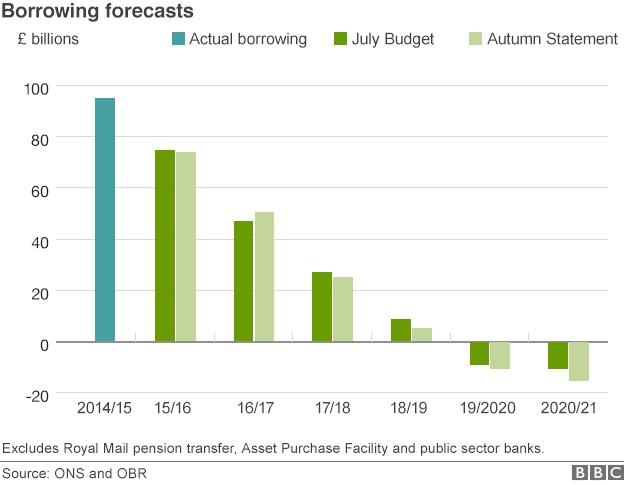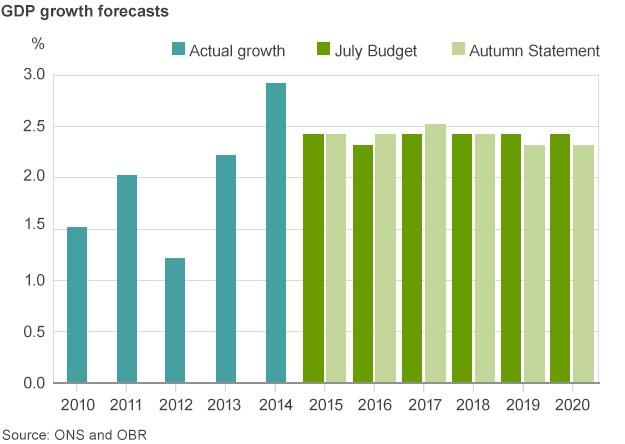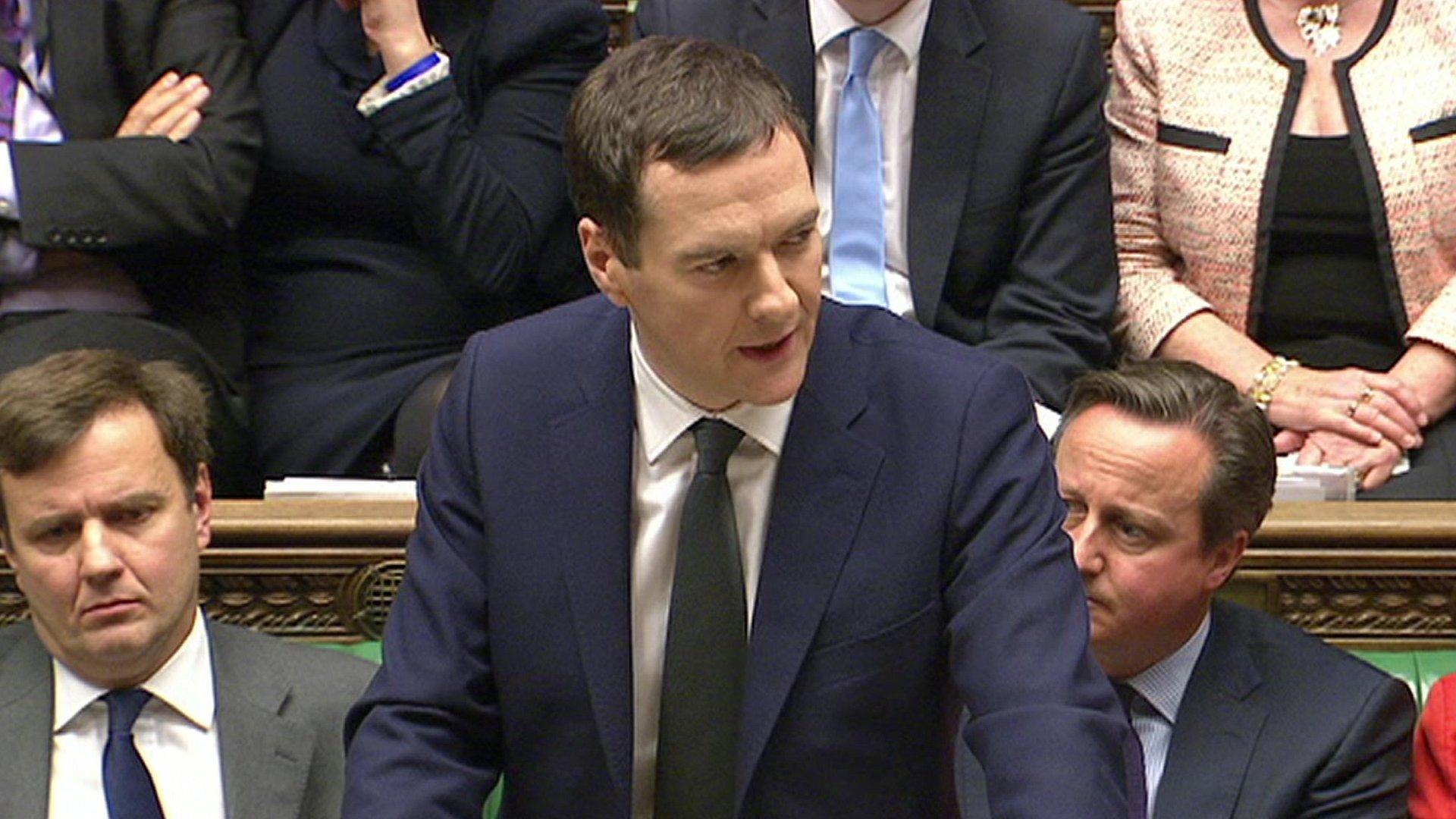Autumn Statement: Public finances better off by £27bn
- Published

Public finances over the next five years are looking £27bn better than they were in July, according to the Office for Budget Responsibility (OBR).
The improvement is due to a combination of better tax receipts and lower interest payments on debt, Chancellor George Osborne said in his Autumn Statement.
It means the government can borrow £8bn less over the next five years.
It also means there can be £12bn more investment in capital projects.
The OBR now predicts, external a small fall in the amount the government will borrow in the current financial year from £74.1bn to £73.5bn. Many analysts had expected the forecast of borrowing this year to increase.
The comparable figure has increased since July because of statistical changes to the treatment of housing associations.
The OBR expects borrowing of £49.5bn next year, £24.8bn in 2017-18 and £4.6bn in 2018-19 before the government moves to a surplus of £10.1bn and £14.7bn in the following two years.
A large proportion of the £27bn improvement in the public finances comes from a correction in the model that the OBR uses to predict the government's VAT take.
It decided that it was being too pessimistic about how much would be raised through VAT.
The effect of correcting this error was considerable: it means an extra £11.5bn by 2020-21, which more than pays for the £9.4bn it is costing the exchequer to scrap its policy of reducing tax credits.
'Persistent problem'
The forecasts for economic growth were barely changed, with the figures for 2016 and 2017 being raised from 2.3% to 2.4% and from 2.4% to 2.5% respectively.
The predictions for 2019 and 2020 have both been cut from 2.4% to 2.3%.
The chancellor said the forecasts remained relatively high despite the expectations for growth in other countries and world trade being revised downwards.
"The weakness of the eurozone remains a persistent problem [and] there are rising concerns about debt in emerging economies," he said.
The full OBR report shows that without the policies announced in the Autumn Statement, the public finances would have very nearly broken even in 2018-19, a year earlier than the chancellor plans, with a deficit of only £200m.
After taking into account the policies just announced, there is now a deficit of £4.6bn expected.

Statement and Spending Review 2015

Presented by Chancellor George Osborne, the Spending Review sets out what government spending will be over the next four years, while the Autumn Statement is an annual update of government plans for the economy.
Special report: Full in-depth coverage of the Spending Review and Autumn Statement
Documents:, external Link to full Autumn Statement and Spending Review documents via HM Treasury
What it means for you: How the Autumn Statement and Spending Review will affect your finances
Watch: The BBC's TV coverage begins on BBC Two and the BBC News Channel at 11:30 GMT, with BBC Radio 5 Live coverage from 11:55 GMT

- Published25 November 2015

- Published25 November 2015
